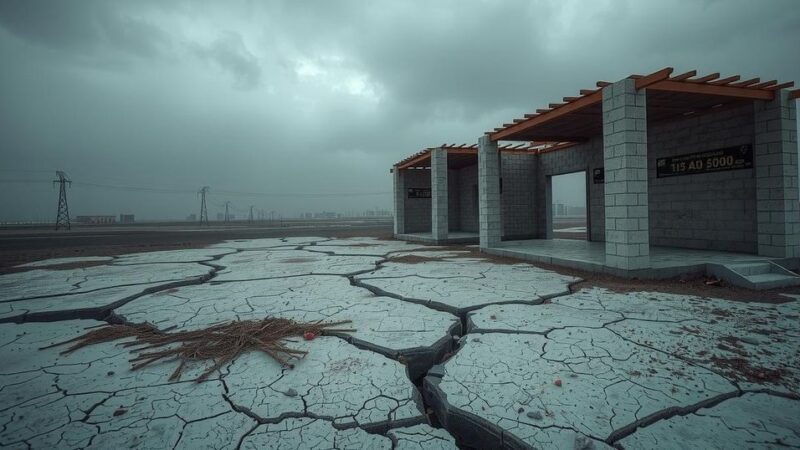Marco Rubio begins his Middle East tour emphasizing support for Israel and warning against Iran. His discussions with Netanyahu spotlight the threats to regional stability and the controversial Trump Gaza plan. The tour progresses with visits to Saudi Arabia and the UAE amidst tensions regarding Gaza and the potential displacement of Palestinians, as Arab countries devise counterproposals to the U.S. plan. The situation remains precarious as negotiations and humanitarian efforts continue against a backdrop of conflict and regional diplomacy.
Marco Rubio commenced his inaugural Middle East tour as Secretary of State with a strong endorsement of Israel’s position and stern warnings directed towards Iran. In a press briefing following his discussions with Israeli Prime Minister Benjamin Netanyahu, Rubio emphasized that regional stability is severely jeopardized, necessitating serious attention to Iran’s activities.
Rubio is scheduled to visit Riyadh and Abu Dhabi next, pivotal nations for U.S. interests. His reception remains unpredictable as the Arab states react negatively to President Trump’s recent Gaza plan, which proposes the relocation of 2.2 million Palestinians. Saudi Arabia has underscored the necessity of establishing a Palestinian state as a condition for normalizing ties with Israel.
The proposed Gaza plan, which faced significant backlash across the Arab world, is supported by Israeli right-wing factions. Arab states are reportedly crafting a counterproposal for Gaza’s reconstruction, emphasizing the need for reconstruction efforts that do not involve the displacement of its residents.
During a press conference, Rubio remarked that the hostages held by Hamas must be released and stated that Hamas should not persist as a military or governing entity. He characterized Trump’s Gaza proposal as bold, courageous, and an essential departure from prior unsuccessful strategies. Netanyahu reiterated their talks concerning Trump’s vision for Gaza, focusing on collaborative efforts to realize that future.
Despite a fragile ceasefire holding between Israel and Hamas, tensions remain high, with accusations of ceasefire violations from both sides. Ongoing diplomatic negotiations aim to maintain this truce, with recent hostages released. Further complexities must be addressed to ensure the success of forthcoming phases of the ceasefire agreement.
Rubio’s itinerary excludes visits to major U.S. allies such as Egypt and Jordan, crucial players in Middle East stability. Both nations face potential repercussions from Trump if they do not accept displaced Palestinians from Gaza. Following a meeting with Trump, King Abdullah II of Jordan emphasized the importance of rebuilding Gaza without displacing its residents.
In light of the ongoing conflict, the U.S. remains a critical supporter of Israel, providing military aid and diplomatic backing amidst tensions between Israeli and U.S. leaders. Meanwhile, fears of a return to war linger in Gaza, as ongoing negotiations face significant challenges in ensuring lasting peace and humanitarian relief.
The situation in Gaza continues to escalate with dire humanitarian consequences, drawing international attention to the urgent need for a reliable solution that respects the rights of all involved. Amid shifting political dynamics, the future of Gaza and its inhabitants remains uncertain, capturing the world’s focus on this volatile region.
In conclusion, Marco Rubio’s first Middle East tour reflects strong U.S. support for Israel amidst significant tensions regarding Iran and the ongoing Gaza crisis. The adverse reactions from Arab states to Trump’s proposal illustrate profound regional challenges, while the complexity of negotiating a durable peace and reconstruction efforts in Gaza remains a pressing issue. The interactions between the U.S. and its allies will be critical in navigating this intricate geopolitical landscape going forward.
Original Source: www.washingtonpost.com






